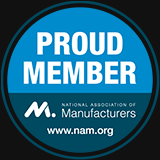
For US companies that outsource some or all of their production to China or otherwise have operations there, the ongoing trade war presents a tangle of cost uncertainties. Some companies are being forced to rethink their supply chain — and on a compressed timeline.
More reading on this: How Will the Trade War Affect US Machinery and Equipment Vendors?
However, amidst the onslaught of supply-chain challenges, one opportunity that does remain relatively buoyed by the tariffs is the prospect of exporting goods to China that have not been slapped with retaliatory tariffs. Certainly, many of these companies are seeing input costs rise similarly to the myriad other industries being squeezed, but their advantage in this trade war is that these cost increases are tempered by reduced competition.
That is, for companies whose products are not facing Chinese tariffs but whose Chinese counterparts are facing American tariffs, there may be a window of opportunity after all. One of these product categories is industrial equipment and machinery.
According to Export.gov, a resource managed by the US Department of Commerce's International Trade Administration, fewer than 20 Chinese companies can provide medium and high-end CNC machine tools. Yet Chinese demand for metal cutting, forming machine tools, and accessories are expected to grow at a strong pace. Meanwhile, in alignment with the increasing demand for quality in China, the majority of US machine tools companies are focused on high-precision, intelligent high-end CNC machine tool and accessories.
A top priority of the Made in China 2025 initiative is to upgrade the manufacturing sector by adopting high-tech intensive manufacturing by making the best use of foreign capital and management expertise. For US SMEs, this may be the right moment in time to carve out market share as China is boosting its domestic needs.
While the United States may be better known as the world's leading exporter of services, material goods still represent two-thirds of its total exports.
US companies are known for producing innovative and high quality products, so China's growing appetite for quality presents unprecedented opportunity for US firms to export their high quality and durable industrial products and components/parts to Chinese manufacturers in various sectors.
Meanwhile, market entry challenges do exist for US firms interested in tapping into these export opportunities. For one, providing localized after-sales service requires a certain degree of capital that may seem risky particular for smaller US firms. Moreover, despite increased efforts from the Chinese government to improve Intellectual Property Rights (IPR) protection, handling the challenges of protecting IPR in China requires an understanding of the complex legal environment.
Moreover, companies interested in exporting typically must invest a considerable amount of resources in planning, developing and executing international sales strategies in order to succeed in today's global marketplace. As a result, smaller companies with fewer resources may find such initiatives to be too risky at their size.
By partnering with Toolots to sell through our online platform, manufacturers can get the tools and assistance they need to expand their company's international sales. Reach us through our contact page to learn more.
More reading on Toolots' vendor services: How Toolots Fulfillment Services Help Vendors Grow Their Distribution





 Toolots employees in their ugly Christmas sweaters.
Toolots employees in their ugly Christmas sweaters. Source: U.S. Bureau of Statistics Textile, Apparel, and Furnishings Workers (51-6099)
Source: U.S. Bureau of Statistics Textile, Apparel, and Furnishings Workers (51-6099)





 According to the United States Department of Agriculture (USDA), food processing occurs at
According to the United States Department of Agriculture (USDA), food processing occurs at 
 Toolots, Inc. is a full-service online distributor of industrial machinery, equipment and components based in Southern California. More than 120 companies from the U.S. and China sell their products through the eCommerce platform and benefit from included marketing, customer service, engineering and other support services.
Toolots, Inc. is a full-service online distributor of industrial machinery, equipment and components based in Southern California. More than 120 companies from the U.S. and China sell their products through the eCommerce platform and benefit from included marketing, customer service, engineering and other support services. White House officials cited the survey during the March 31 press briefing, expressing confidence that the administration’s actions on trade - namely leaving the Trans-Pacific Partnership and recent executive orders - are helping to nurture that optimism.
White House officials cited the survey during the March 31 press briefing, expressing confidence that the administration’s actions on trade - namely leaving the Trans-Pacific Partnership and recent executive orders - are helping to nurture that optimism.


